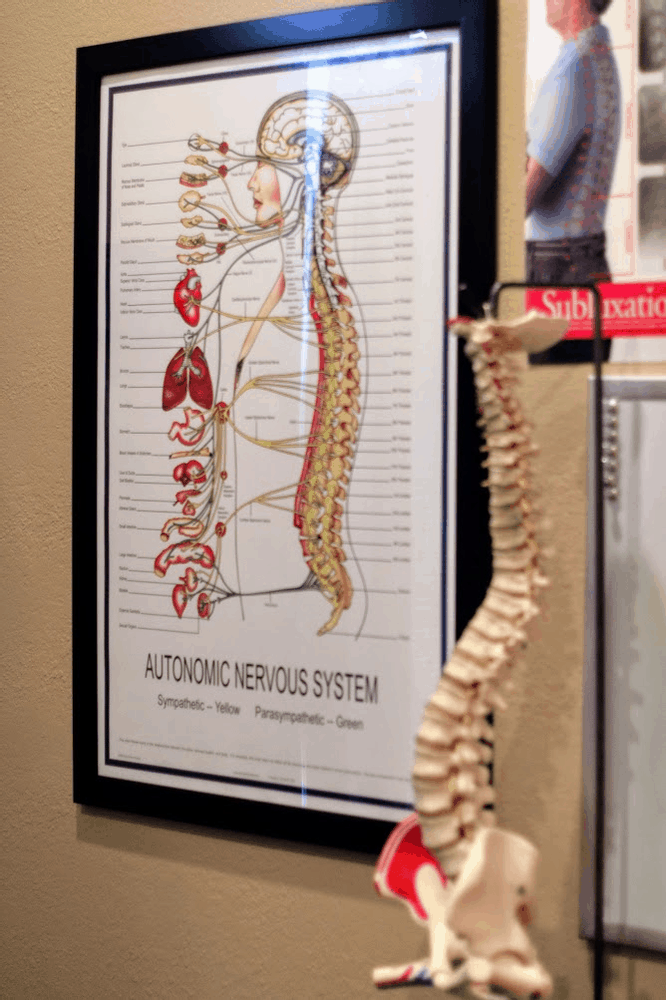Your body is run by a central nervous system, similar the CPU of a computer. This central nervous system controls every process that happens in your body and the quality of information it shares with your body will determine your health.
Reduced quality of nerve information can take three forms. First, it will impact organ and gland function. Secondly, it will affect the motor nerve system, creating musculoskeletal problems such as muscle spasms and excess wear and tear on joints. Last, reduced quality of nerve information will cause a decrease in adaptability to stress, often leading to overuse of the sympathetic or “fight or flight” portion of the nerve system.
When nerve quality interference impacts organ and glands, this means that your body will have a difficult time performing tasks that keep you healthy and functioning well. For example, if nerves that supply the stomach are functioning poorly, you may have a hard time assimilating and using nutrients from your food.
When nerve quality interference impacts the musculoskeletal system you will experience areas of muscle tightness, spasm or fatigue, spinal pain, headaches, or extremity pain such as shoulder, arm, leg or foot pain. Interestingly, musculoskeletal injuries, such as a fall or accident, can also damage the structural system designed to protect the nerves and create a loop of structural misalignment creating irritation to the nerve, which in turn can cause a worsening of the structural misalignment. This can be seen in the example of whiplash where there might be a mild soreness at the time of injury which can lead to years of neck pain and headaches if not rehabilitated properly.
When nerve quality interference impacts the ability of the body to respond and adapt to stress we’ll often see global body and mood changes. These changes include lowered immunity (frequent colds, flus, bronchial infections, etc.), poor digestion or indigestion, constipation, trouble sleeping, sexual dysfunction, trouble concentrating, being overly “jumpy” or exhibiting anxiety, shallow breathing, increased hear rate, fatigue, agitation or irritation and jaw clenching / grinding (bruxism).
Because nerve quality interference can continue undetected for many years it is advised to have a routine chiropractic screening, similar to a dental exam checking for small cavities before they become a big problem. In between checkups, here are some tools you can use at home to care for the supporting structure protecting your nervous system:
1. Practice good spinal hygiene. This includes daily range of motion stretches or a good yoga routine.
2. Discuss with your chiropractor whether at-home spinal molding is right for you. This is a powerful step that can help you to hold your alignment over months and years.
3. Align your computer monitor so that your head and eyes remain in a neutral position while performing computer work.
4. Avoid “text neck”. If you need to spend extended time on your cell phone, bring it up to eye level instead of hunching over the device.
5. Avoid sleeping in any position that cocks your head forward. For example, placing your head on the arm of the couch or on a stack of pillows.
6. Practice stress modulation. Emotional Freedom Technique (EFT) tapping or using a Heart Rate Variability (HRV) trainer such as Heart Math are both excellent resources.
7. Routinely check your posture (and your kids!) for signs of high shoulders, hips, short legs, rounding shoulders or head forward posture. Seek professional help if needed.


